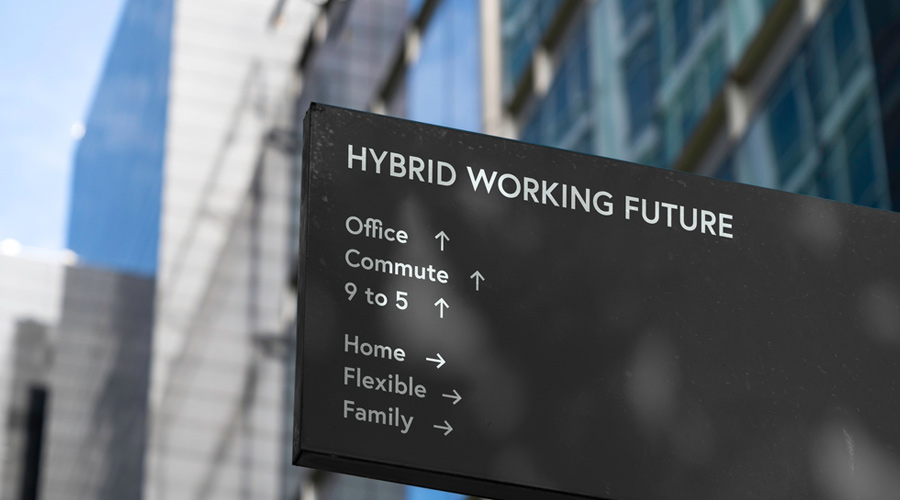The work-from-homers have won, at least partially. Hybrid working looks set to be the future of the Indian workplace if the plans of the country’s giant IT companies are anything to go by. Wipro, for instance, has called all employees back to work from October 10. But the working hours will be very different from before the pandemic with employees reluctant to give up the comforts of home for the office.
“Starting October 10, Wipro's offices in India will be open Mondays, Tuesdays, Thursdays, and Fridays. We will not be open on Wednesdays,” says an email sent to all employees. Ideally, says the mail, the employees should be in office at least three days a week.
India’s biggest IT company, TCS, is moving in a similar direction toward a blend of in-person and remote work. It wants employees to be in office at least three days a week. And the rules are tougher for senior staff who must be in office five days a week.
Both firms say they will be open on Monday, Tuesdays, Thursdays and Fridays and employees can choose three days out of these. Also, there will be certain projects that require employees to work only from the office. Infosys and HCL Tech are also opting for hybrid models of working.
Some smaller companies are going even further, recognising that many workers don’t want to be chained to their desk five days a week. NIIT Ltd is preparing itself for the post-Covid working world by redesigning its offices. It’s ripping out the cabins and replacing them with a central workspace surrounded by “collaborative areas” where groups can get together and discussions take place.
Implicit in the redesign is the recognition that only about 30-to-40 per cent of the staff will be in office on any given day.
Several patterns
A recent survey by global real estate firm CBRE South Asia, suggests that a massive 73% of the companies in India are considering hybrid working arrangements to satisfy employees who want to retain the work-life balance that WFH (work from home) has offered. According to the survey, flexible working follows several patterns including three or more office days a week.
Real estate consultant Colliers also carried out a survey that produced similar findings suggesting that around 63 per cent of companies are embracing the flexible model. "Three days a week in the office seems to be the most popular mode, furthering business goals and at the same offering work-life balance to employees," Colliers India said in its report.
Many managers at tech companies are keen to get employees back in office, believing it’s the best way for workers to absorb the corporate culture, swap ideas, and build team spirit. But they’re also aware they’ll face resistance if they insist on 100 per cent work from office from employees who like the absence of a commute and the flexibility.
'Moonlighting' a concern
So, they’re ready to compromise, although the senior management has big reservations about employees working from home, “moonlighting” being one of them.
Wipro has taken a tough stand by terminating 300 employees for taking on other jobs while still on its payroll. Wipro Chairman Rishad Premji, who was the first to draw public attention to the problem, called it cheating.
Other tech companies are also moving more quietly against employees who are under contract but adding to their income by taking a second job. Moonlighting is obviously easier when working from home and not under a team leader’s direct gaze.
Employee productivity
Reflecting employers’ unease about what their employees are doing, a new Microsoft survey found that 91 per cent of corporate leaders believed that hybrid work has made it difficult to have confidence in employees' productivity while 93 per cent of workers insisted they are productive on the job. In fact, some employees say that WFH has meant they have been working harder than before the pandemic with bosses expecting them to be on-call 24/7.
Also, 80 per cent of employees want a better reason to get out of their pajamas and return to work aside from fulfilling the company’s expectations. Microsoft's Work Trends Index 2022 suggests one lure to come to office is an opportunity to socialise with coworkers. The survey covered over 20,000 full-time or self-employed people in 11 countries, including 2,000 in India.
Jamie Dimon, chief executive of JPMorgan Chase, was an early and vociferous critic of remote working, saying it hurt creativity and slowed decision-making. in his latest shareholder statement Dimon has accepted the new order of things. Only around half of JPMorgan's 270,000 staff will work from the office full-time, Dimon said, adding it’s clear WFH will “become more permanent in American business.”
Tech firms set the trend
This country’s tech companies are massive employers and set the tone for a large chunk of Indian industry. TCS for instance, has slightly over 600,000 workers and Infosys has 335,000. Last November, it was forecast that they would hoover up 450,000 new recruits by the end-2022. In the event, the market has slowed considerably but they are still by far the biggest employers.
Many older industries, too, have been facing a dilemma, especially if they don’t really approve of working from home. Take senior industrialist Harsh Goenka who doesn’t mince his words when asked about working from home. “You have to spark off ideas by talking about things,” he insists. “With WFH, there’s no ‘connect’ with people. No innovation happening in the world,” he says heatedly.
And it isn’t only the older industries that want people back in office. “In start-ups, everyone has to be back 100 per cent,” says Amit Ramani, founder & CEO, Awfis Space Solutions, which is a big player in co-working. He adds: “If you talk to senior managers they all want everybody back like the good old days.” He says telecom and banking and financial companies are also insisting everyone should get back to office.
Fewer giant IT/ITES projects
The IT/ITES industries is where many employees are demanding that WFH should continue – and they have the whip hand. That’s because in 2021 there was a huge boom in business and a consequent demand for more people, though that’s lessening now.
Fears of a recession in the US and Europe is leading to fewer giant projects coming in for the IT giants. The companies are said to be planning to cut hiring 20 per cent from April 1, 2023. Already, some companies are rescinding offers made earlier in the year.
With jobs getting tougher, there’s every chance that the large IT companies will tighten their rules and insist that people return to office. Goenka says that now “with margins eroding, markets softening, demand for workers reducing,” companies that want their employees at their office desks may have more sway.
All eyes on Big Tech
The IT industry will also be looking to giants like Apple, Google and Microsoft in the US. If these companies start insisting that employees return to work in the US, their Indian units are likely to do the same. It’s the same story for the international banks, many of which are already back in office almost full time.
As one senior executive points out, “A lot will depend on how clients abroad are working. We will have to match them.”
Nevertheless, Zoom conferences have demonstrated their utility and the working world has been changed irrevocably from what it was till 2019. There will surely be much more room for flexibility in the future. Even Goenka isn’t suggesting we should all return to the 5/6 days a week, eight-to-10 hours office routine.
'Talk to your boss'
He’s leaving managers plenty of autonomy to decide when teams need to gather in office and when they can be on a Zoom screen. Says Goenka: “You talk to your boss. If your boss decides you can work from home for the next two months I am okay. If your boss decides you had better come for the next 15 days you had better come. Except that we try to get the boss to be reasonable and understanding.”
Goenka does, however, throw in a warning about the hybrid workplace. Ambitious executives will need to keep a high profile and make their presence felt. Says Goenka: “If you don’t want a great career, then WFH. If you have a burning ambition, you can’t get away from transacting with human beings.”











